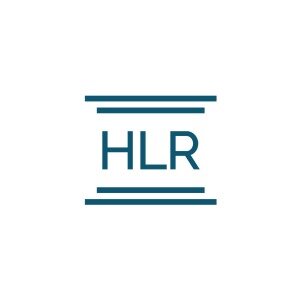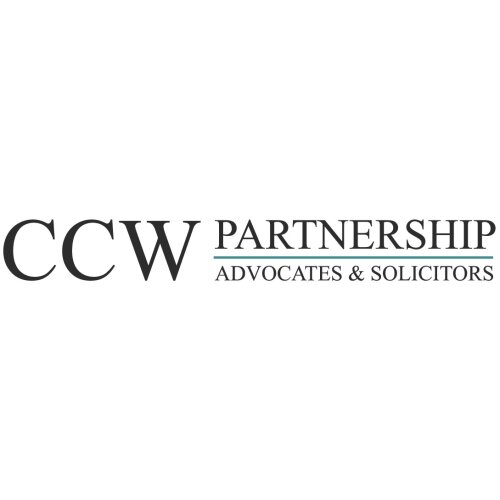Best Energy Regulatory Law Lawyers in Brunei
Share your needs with us, get contacted by law firms.
Free. Takes 2 min.
Or refine your search by selecting a city:
List of the best lawyers in Brunei
About Energy Regulatory Law in Brunei
Energy Regulatory Law in Brunei governs the production, distribution, and consumption of energy within the country. Brunei is a nation heavily reliant on oil and natural gas production, making energy regulation a critical aspect of its legal and economic framework. The law covers a broad array of issues such as licensing, environmental standards, energy efficiency requirements, renewable energy initiatives, consumer protection, and market competition. Regulations are enforced through several government agencies and statutory bodies tasked with ensuring compliance, resource management, and sustainable growth within the energy sector.
Why You May Need a Lawyer
Legal matters involving energy regulations can be complex due to their technical nature and the importance of compliance with governmental requirements. You may require legal assistance for a variety of situations including:
- Applying for or renewing energy sector licenses
- Negotiating energy supply or purchase agreements
- Responding to regulatory enforcement actions or investigations
- Advising on compliance with environmental and safety standards
- Resolving disputes with energy suppliers, contractors, or government agencies
- Participating in government tenders or public-private partnerships
- Understanding obligations under new or amended regulations
- Supporting investments in renewable energy projects
Lawyers experienced in Energy Regulatory Law can help navigate the extensive paperwork, ensure compliance, reduce legal risks, and represent your interests effectively.
Local Laws Overview
Energy regulation in Brunei is primarily governed by laws and guidelines issued by the government and its statutory authorities. Key aspects include:
- Energy Industry Act - Provides overall regulation for energy generation, distribution, and sale.
- Utilities regulation - Licensing and operational standards for utilities such as electrical power and gas supply.
- Environmental laws - Set parameters for emissions, waste management, and the environmental impact of energy projects.
- Renewable energy targets - Policies and regulations aimed at diversifying energy sources beyond oil and gas.
- Foreign investment guidelines - Rules regarding foreign participants in the energy market.
- Health and safety requirements - Occupational and process safety for employees and the public.
Compliance with these laws is overseen by agencies such as the Energy Department at the Prime Minister’s Office and the Department of Electrical Services. Non-compliance can result in hefty fines, suspension of licenses, or other penalties.
Frequently Asked Questions
What is the main regulatory body responsible for energy in Brunei?
The primary authority is the Energy Department at the Prime Minister’s Office, which oversees the formulation and implementation of policies related to energy production and consumption.
Do I need a license to operate an energy business in Brunei?
Yes, almost all energy businesses, including electricity generation, oil or gas extraction, and distribution, require specific licenses issued by relevant authorities.
What are the penalties for violating energy regulations?
Penalties may include fines, suspension or revocation of licenses, and in severe cases, criminal prosecution.
Are there regulations specific to renewable energy?
Yes, Brunei has initiatives and regulations aimed at promoting renewable energy sources. Investors must adhere to guidelines provided for renewable projects including safety, environmental, and installation standards.
Is foreign investment allowed in Brunei’s energy sector?
Foreign investment is permitted but subject to approval and oversight by relevant government agencies. Investments must comply with local content requirements and partnership stipulations.
How does Brunei regulate environmental impact in the energy sector?
Environmental laws impose strict requirements on emissions, waste handling, and sustainability. Project proponents must often conduct environmental impact assessments.
What rights do energy consumers have under Brunei law?
Consumers are protected by regulations that ensure fair pricing, safety, reliable supply, and proper redress for complaints.
Can I represent myself in energy regulatory proceedings?
While individuals and businesses may represent themselves, reaching a satisfactory outcome is more likely with legal counsel due to the technical and regulatory complexities involved.
How are disputes between energy companies and the government resolved?
Disputes are typically resolved through negotiation, administrative review, or in some cases, through the courts subject to the provisions of relevant statutes.
What are common compliance requirements for energy companies?
Common requirements include regular reporting, safety checks, environmental monitoring, timely payment of fees and levies, and adherence to operational guidelines.
Additional Resources
Several organizations and bodies provide guidance and oversight in Brunei’s energy sector. Key resources include:
- Energy Department at the Prime Minister’s Office
- Department of Electrical Services
- Brunei Shell Petroleum Company (as a major industry player and benchmark)
- National Environment Agency for environmental compliance
- Brunei Darussalam Chamber of Commerce and Industry for business guidance
Consulting reports and publications from these bodies or attending relevant government workshops can also be useful to stay updated on regulatory changes.
Next Steps
If you need legal assistance in Energy Regulatory Law in Brunei, consider the following steps:
- Gather all relevant documentation, such as licenses, contracts, or prior correspondence with authorities.
- Identify the specific issue or area where you require guidance, whether it is compliance, licensing, investment, or dispute resolution.
- Consult with a qualified Bruneian lawyer who has experience in energy regulation for an initial assessment of your case.
- Stay informed about any regulatory updates or changes by monitoring government notices and industry publications.
- Follow through with your lawyer’s advice to ensure full compliance and to protect your legal and business interests.
Seeking timely and specialized legal help gives you the best chance to navigate Brunei’s energy regulatory landscape successfully and avoid unnecessary risks or penalties.
Lawzana helps you find the best lawyers and law firms in Brunei through a curated and pre-screened list of qualified legal professionals. Our platform offers rankings and detailed profiles of attorneys and law firms, allowing you to compare based on practice areas, including Energy Regulatory Law, experience, and client feedback.
Each profile includes a description of the firm's areas of practice, client reviews, team members and partners, year of establishment, spoken languages, office locations, contact information, social media presence, and any published articles or resources. Most firms on our platform speak English and are experienced in both local and international legal matters.
Get a quote from top-rated law firms in Brunei — quickly, securely, and without unnecessary hassle.
Disclaimer:
The information provided on this page is for general informational purposes only and does not constitute legal advice. While we strive to ensure the accuracy and relevance of the content, legal information may change over time, and interpretations of the law can vary. You should always consult with a qualified legal professional for advice specific to your situation.
We disclaim all liability for actions taken or not taken based on the content of this page. If you believe any information is incorrect or outdated, please contact us, and we will review and update it where appropriate.
Browse energy regulatory law law firms by city in Brunei
Refine your search by selecting a city.














